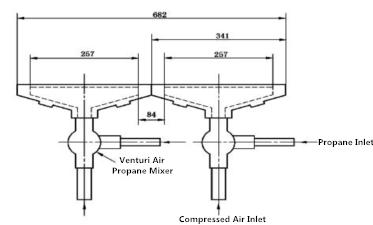Tensile Testing Equipment Available for Purchase from Leading Manufacturers and Suppliers
Tensile Tester for Sale A Comprehensive Guide for Companies
In the world of materials testing, tensile testers have become indispensable tools for companies across various industries. From manufacturing and construction to research and development, the ability to accurately measure the tensile strength of materials can greatly influence product quality, safety, and performance. As a result, many businesses are on the lookout for reliable tensile testers for sale. This article will explore the features companies should consider when purchasing a tensile tester, the benefits of investing in such equipment, and leading brands available on the market.
Understanding Tensile Testing
Tensile testing, also known as tension testing, involves subjecting a material sample to a controlled tension until it deforms or breaks. The primary goal is to determine the material's mechanical properties, including tensile strength, elongation, yield strength, and modulus of elasticity. This testing method is crucial for ensuring that materials can withstand the stresses they will encounter in real-world applications.
Key Features to Consider
When searching for a tensile tester for sale, companies should evaluate several key features to ensure they choose the right equipment
1. Load Capacity Different materials have varying tensile strengths, so it's essential to select a tensile tester with an appropriate load capacity for the intended applications. Equipment should meet or exceed the maximum load expected during testing to ensure accurate results.
2. Testing Speed The speed at which a tensile tester operates can affect the accuracy of results. Companies should look for models that allow for adjustable testing speeds to accommodate different materials.
3. Software Integration Modern tensile testers often come equipped with advanced software that allows for data collection, analysis, and reporting. Companies should consider units that offer user-friendly software for easier data management and compliance with industry standards.
4. Sample Fixtures The type of sample fixtures available with the tester is crucial for obtaining accurate measurements. Ensure the tester can accommodate various sample shapes and sizes, including flat, round, and even complex geometries.
5. Calibration and Certification It is essential to choose a tensile tester that can be easily calibrated and is certified to meet industry standards. Compliance with such standards ensures reliability, accuracy, and repeatability of test results.
Benefits of Investing in a Tensile Tester
tensile tester for sale companies

Investing in a tensile tester can yield numerous advantages for companies
- Quality Control Regular tensile testing helps maintain high-quality standards in manufacturing. By identifying weaknesses in materials early in the production process, companies can mitigate risks and reduce waste.
- Competitive Advantage Understanding the mechanical properties of materials allows businesses to innovate and develop superior products, giving them an edge in a competitive market.
- Regulatory Compliance Many industries have strict regulatory requirements concerning material performance. A reliable tensile tester ensures that companies can meet these regulations consistently.
- Cost Savings By catching material defects early and ensuring that only high-quality materials are used in production, companies can save on costs associated with recalls, repairs, and replacements.
Leading Brands in the Market
Several reputable brands offer high-quality tensile testers for sale, catering to a wide range of industries
- Instron Known for its innovative testing solutions, Instron provides a variety of tensile testers suitable for both laboratory and field settings.
- Shimadzu This brand offers advanced testing machines with user-friendly interfaces and excellent software options for data management.
- MTS Systems Corporation MTS manufactures a range of tensile testers with customizable features, making them ideal for specific testing requirements.
- Tinius Olsen With over a century of experience, Tinius Olsen provides reliable and precise tensile testers widely used in various industries.
In conclusion, a tensile tester is a vital investment for any company involved in material manufacturing or quality control. By considering essential features, understanding the benefits, and choosing a reputable brand, businesses can ensure they select the right tensile tester to meet their specific needs. As the demand for advanced materials continues to grow, so too will the importance of accurate tensile testing.
-
Why the Conductor Resistance Constant Temperature Measurement Machine Redefines Precision
NewsJun.20,2025
-
Reliable Testing Starts Here: Why the High Insulation Resistance Measuring Instrument Is a Must-Have
NewsJun.20,2025
-
Flexible Cable Flexing Test Equipment: The Precision Standard for Cable Durability and Performance Testing
NewsJun.20,2025
-
Digital Measurement Projector: Precision Visualization for Modern Manufacturing
NewsJun.20,2025
-
Computer Control Electronic Tensile Tester: Precision and Power for the Modern Metal Industry
NewsJun.20,2025
-
Cable Spark Tester: Your Ultimate Insulation Assurance for Wire and Cable Testing
NewsJun.20,2025
 Copyright © 2025 Hebei Fangyuan Instrument & Equipment Co.,Ltd. All Rights Reserved. Sitemap | Privacy Policy
Copyright © 2025 Hebei Fangyuan Instrument & Equipment Co.,Ltd. All Rights Reserved. Sitemap | Privacy Policy
